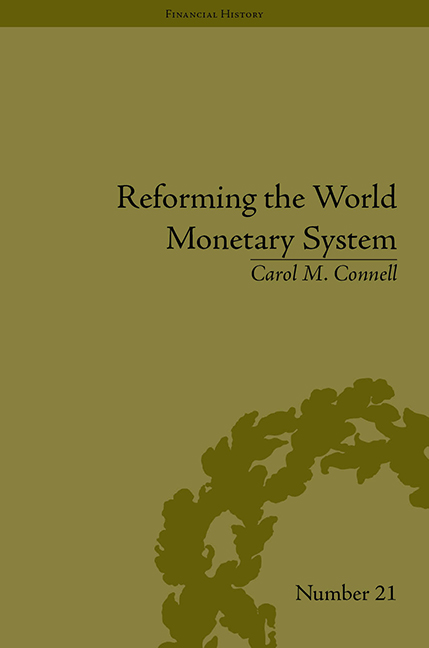Book contents
- Frontmatter
- Contents
- Acknowledgements
- List of Figures and Tables
- Introduction
- 1 A Crisis in Confidence
- 2 Fritz Machlup, his Research and Methodology
- 3 Robert Triffin and the Triffin Plan
- 4 William Fellner and the Intersection of Macro and Microeconomics
- 5 Why Economists Disagree: The Role of Framing in Consensus Building
- 6 ‘Assuring the Free World's Liquidity’ through Multiple Reserve Currencies
- 7 Milton Friedman and the Arguments for Flexible versus Fixed Exchange Rates
- 8 Collaboration with the Group of Ten
- 9 Adjustment Policies and Special Drawing Rights: Joint Meetings of Officials and Academics
- 10 From the Bellagio Group to the Bürgenstock Conferences
- 11 From the Bellagio Group and Joint Conferences of Officials and Academics to the Group of Thirty
- 12 Reassessing the Bellagio Group's Impact on International Monetary Reform
- 13 The Impact of the Bellagio Group on International Trade and Finance Scholarship from the 1960s to the Present
- Conclusions
- Notes
- Works Cited
- Index
11 - From the Bellagio Group and Joint Conferences of Officials and Academics to the Group of Thirty
- Frontmatter
- Contents
- Acknowledgements
- List of Figures and Tables
- Introduction
- 1 A Crisis in Confidence
- 2 Fritz Machlup, his Research and Methodology
- 3 Robert Triffin and the Triffin Plan
- 4 William Fellner and the Intersection of Macro and Microeconomics
- 5 Why Economists Disagree: The Role of Framing in Consensus Building
- 6 ‘Assuring the Free World's Liquidity’ through Multiple Reserve Currencies
- 7 Milton Friedman and the Arguments for Flexible versus Fixed Exchange Rates
- 8 Collaboration with the Group of Ten
- 9 Adjustment Policies and Special Drawing Rights: Joint Meetings of Officials and Academics
- 10 From the Bellagio Group to the Bürgenstock Conferences
- 11 From the Bellagio Group and Joint Conferences of Officials and Academics to the Group of Thirty
- 12 Reassessing the Bellagio Group's Impact on International Monetary Reform
- 13 The Impact of the Bellagio Group on International Trade and Finance Scholarship from the 1960s to the Present
- Conclusions
- Notes
- Works Cited
- Index
Summary
Introduction
The last Basle meeting of officials and academics in 1977, funded by the Bank for International Settlements, was the final group meeting organized by Machlup, Triffin and Fellner. On several occasions in the early 1970s, there had been discussions at the Ford Foundation of the wisdom of continuing to fund Machlup's meetings after so many years.
In some important ways, including the early membership, the Group of Thirty (as the group would be called) was an extension of the Joint Meetings of Officials and Academics established by Fritz Machlup in 1964, but it was not a similar forum for private discussion.
In a paper written on the thirtieth anniversary of the Group of Thirty, Peter Kenen confirmed that the Bellagio Group so named would not meet again until 1996, when Andrew Crockett, the general manager of the Bank for International Settlements (BIS), asked Kenen to put together a meeting of academics, central bankers and officials from the finance ministries of the major industrial countries, as well as the chief economists of the BIS, the International Monetary Fund and the Organisation for Economic Co-operation and Development (OECD). The group continues under the leadership of Barry Eichengreen, professor of economics and politics at the University of California, Berkeley. It meets once each year and is financed by the participating central banks. The Rockefeller Foundation, owner of the Bellagio estate, also uses the name Bellagio Group for the varied conferences and activities conducted there.
- Type
- Chapter
- Information
- Reforming the World Monetary SystemFritz Machlup and the Bellagio Group, pp. 161 - 184Publisher: Pickering & ChattoFirst published in: 2014



